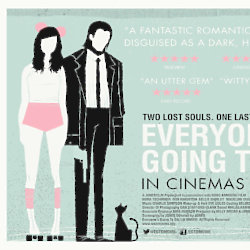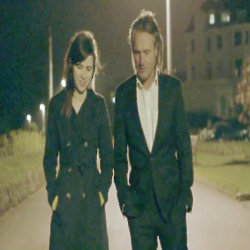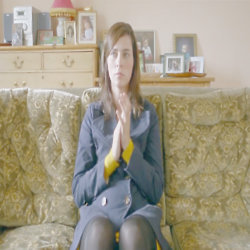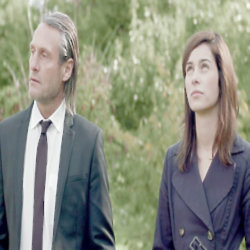Kellie Shirley is set to return to the big screen this week as she stars in new British indie film Everyone's Going to Die.
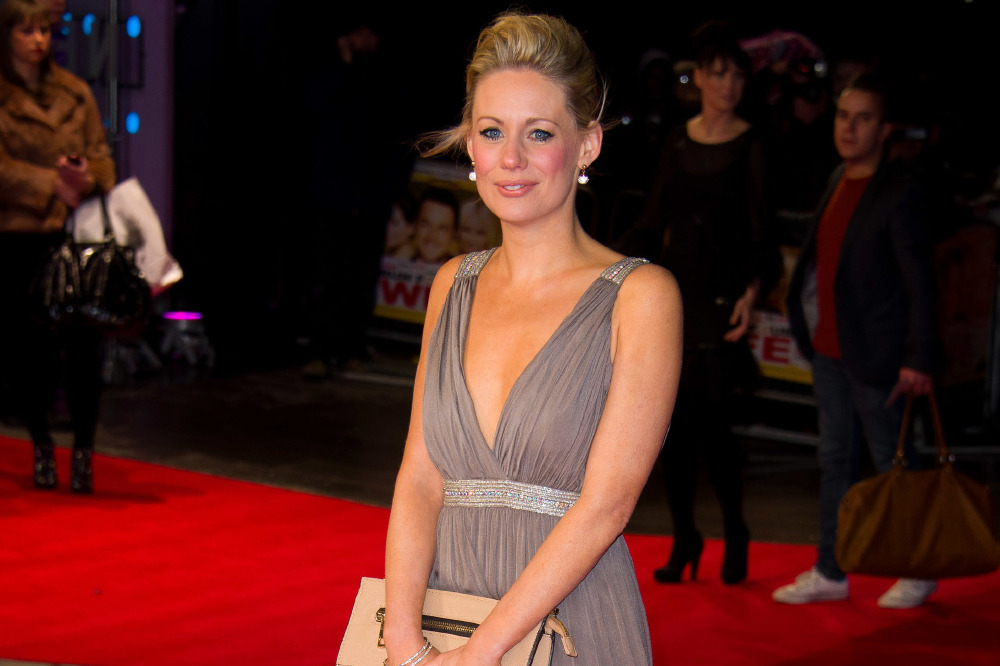
Kellie Shirley
Everyone's Going to Die sees Kellie star alongside Nora Tschirner and Rob Knighton, while Jones are in the director's chair making their feature film debut.
We caught up with the actress to chat about the new film, the success of the film on the festival circuit, and what lies ahead.
- You are set to return to the big screen this summer with drama Everyone's Going to Die, so can you tell me a bit about the film?
Everyone's Going to Die is a really cool independent film. It sounds like a horror but it's not; it's a Lost in Translation type film. I did another film with an actress called Nora Tschirner - we did a film for Warner Bros called Girl on a Bicycle with Paddy Considine - and she got this job and there was a part for a female, trashy, chavvy character and she was like 'I know just the person' (laughs). That is how I got involved. We shot it down on location in Kent; I'm from Kent as well and it just fitted like a glove really.
It is just a really sweet film about two people who meet and it's like will they? Won't they? It is left a bit ambiguously; it doesn't spoon-feed you and lets the audience come up with their own ideas about what happened.
- You take on the role of Ali in the film, so what was it about this character and the script that was the major draw?
I wanted to work with Nora again anyway - she also served as executive producer on the film. We got on really well on the first film together because we were in Berlin, Munich, and Paris for quite a long time and become really good friends. When she gave me this script... I love independent films - especially British ones - because they are a bit kooky and there is something charming about them.
When she gave the script to me, I just really loved the writing, it was a nice story, and, being a Kent girl myself, I was really keen to do a movie in Kent. It fitted in really well with something else that I was doing at the time; I was shooting a film called Run for Your Wife, which was this silly and fun with Danny Dyer. It was completely different to that and I thought it would be a nice thing to do because it was completely different. The script was brilliant basically.
- Can you talk a bit about Ali, where she fits into the story, and how we are going to see her develop throughout the film?
Ali is a character who pops in and out of the story; she is there right at the beginning and then comes in and out of it. The main thrust of the story focuses on Nora and Rob Knighton's characters - he is bloody brilliant. She is weaved in and out of the story and is a bit of a guardian angel to Nora's character.
She tries to help her find a job and she phones her up every now and them just to check up on her. She is a bit of a trailer trash kind of girl but she is a fun character that is very independent. She is a bit of a mystery really.
- The movie is directed by the British collective Jones, so what was it like working with them and what kind of directors were they?
I have only worked with a directing duo before and it is quite unusual to work with two directors. However, I do like that. One of them was looking out for the acting side of it and how the delivery of the film was because they wanted it to be a certain tone, while the other would look at the lighting and how it actually looked on screen.
It was nice to get two different opinions and they worked really well together. It is quite unusual to have two directors. They are the same age as me and it was quite cool to be the same age and making this film together.
- How collaborative a set was Everyone's Going to Die? Were the directors very open to you bring your own ideas to the characters and to the scenes?
Yeah, they were. This was their first film and it was their baby; they had done commercials and music videos before. They believed in their actors and they were up for you trying different things. However, there was a specific tone that they wanted for the piece.
They did let you get on with it but there was a clear tone that they wanted for it. They would say 'can you try and play that under and hardly do anything,' a bit like Bill Murray who does nothing on screen and it is all through his eyes. They let you do something to a certain extent, but tailored it to fit the tone.
- Of course the film has a script but how much improv was there doing the shoot? Do you like to work that way as an actor?
There was a little bit, but not too much. They knew what they wanted and it was very true to the script. We didn't improvise too much.
- The movie has been to a few festivals over the last few years, so have you been able to get out on the festival circuit and experience the screenings?
I was doing a play called One Man, Two Guvnors at the National when it came out; one night I ran over and caught the last twenty minutes when it screened at the Raindance Film Festival. I was working at the Haymarket at the time and the screening was at the Haymarket Apollo. I was able to catch the last twenty minutes, which was great because I thought 'wow, I am doing my West End show and I am running across to see myself in a film,' it was a really nice moment in my career.
I haven't been able to be part of the festival circuit too much because of work. It has done really well on the festival circuit and that is why it has got its UK release - it really does go to show that if a little independent film is done well, they can have a life after the festivals.
- It was back in 2013 when the film premiered at South By Southwest before going on to the Edinburgh International Film Festival. It is getting a theatrical release two years later, so was there ever a point where you thought the film wouldn't get to this point?
I think there have been so many times in my career where things have gone straight to DVD that I am use to it (laughs). It's one thing going up for an audition and getting the job and then it's a whole other thing, after the job has happened, that decides whether or not it gets a release.
I have learnt the hard way with things like that. I am just really happy that it has got a cinema release because it is absolutely brilliant. Jones and producer Kelly Broad had worked so hard on it and it's just a great British film.
- How important do you feel that festivals are in giving smaller and independent films a platform?
Massively. Our film industry is geared up for those big blockbusters such as Harry Potter and Mad Max. It is great that we have got places like The Picturehouse and the lovely independent cinemas that do breathe life into British cinema and you can go and see lovely independent film. It is hard, it is expensive making films, and festivals are the best way to be able to see an eclectic mix of UK cinema talent.
- During you career, we have seen you move between TV and film, so how do you find moving between the two mediums? Where does your heart lie?
As long as people are giving me job, I am happy. I love working and I have been really lucky, as you say, that I have been able to dip into theatre, film, and television. I really have been lucky like that. I just love working and I love working with different people. It is about the part, the script and you learn something on every job, and you meet different people on different jobs. My heart just lies with the whole thing and I just love working.
- Finally, what's next for you going through the second half of this year?
I have got something out at the moment called The Marriage of Reason & Squalor, which is on Thursdays at 9pm on Sky and is directed by the Chapman brothers. Then I am having twins in six weeks' time and I think the rest of the year really is going to be nappies, baby sick and sleepless nights (laughs).
I am fronting a campaign for the Anthony Nolan Leukaemia Trust to get women to donate their umbilical cord blood. There are four hospitals in the UK - King' College Hospital in London, Saint Mary's in Manchester and the Leicester Royal Infirmary and Leicester General Hospital - where, if you are having babies at those hospitals you can donate your umbilical cord blood for free and it helps to save two thousand lives each year.
- How did you get involved with the campaign?
I ran the marathon for Anthony Nolan back in 2008 and then I randomly went to the dinner with Nick Clegg's wife Miriam - who is an Anthony Nolan supporter - and she told me that in Spain this was compulsory; when you give birth, they take the cord blood anyway. The success rate in Spain for Leukaemia is amazing. However, in this country, they throw all of the cord blood away at birth - which is ridiculous because it is the best blood possible. She was doing this talk and I got chatting to her. She said that if I ever got pregnant that I should donate my cord blood, so when I did, we changed hospitals to King's so I could. They asked me to front the campaign because I was incredibly passionate about it and that is how I got involved. I am spending quite a bit of time talking about that at the moment.
Everyone's Going to Die is released 26th June.


